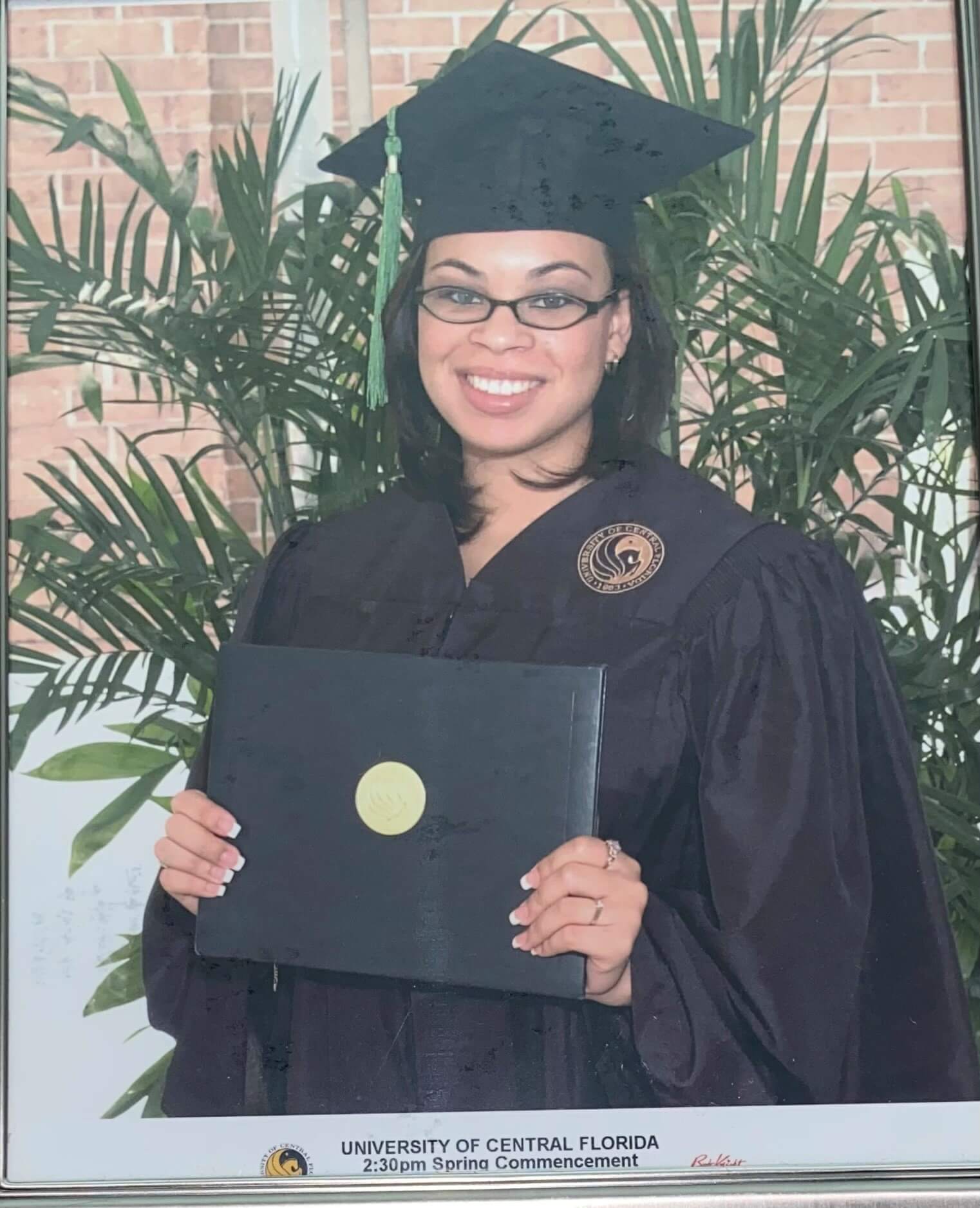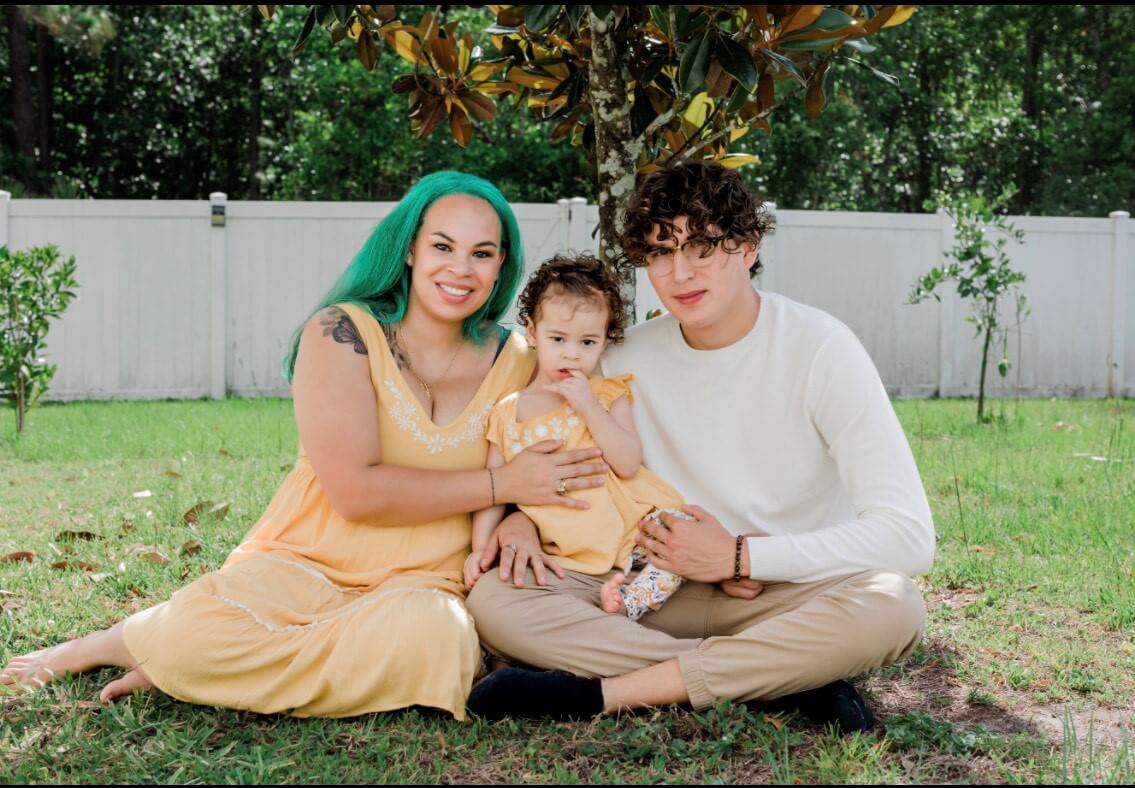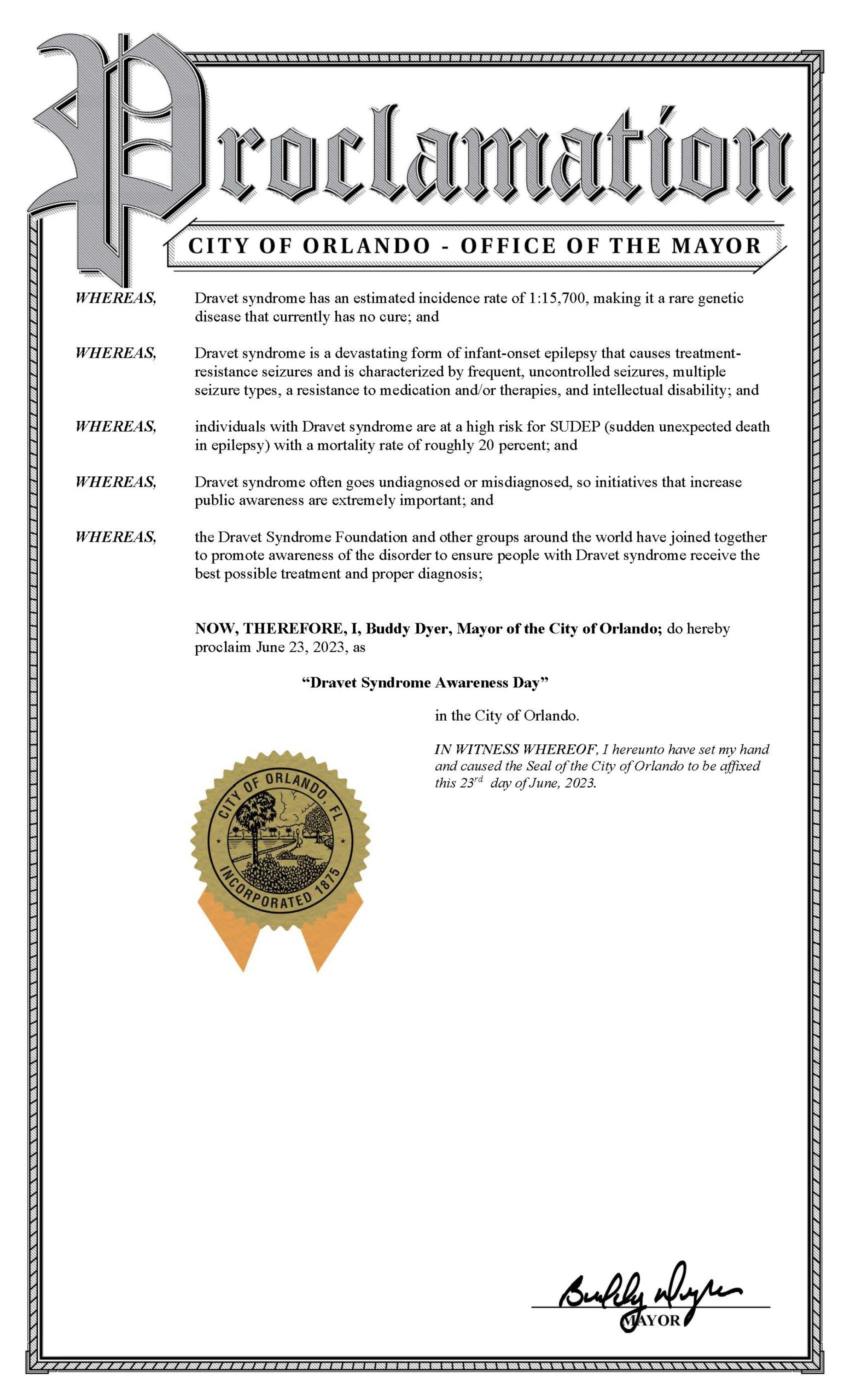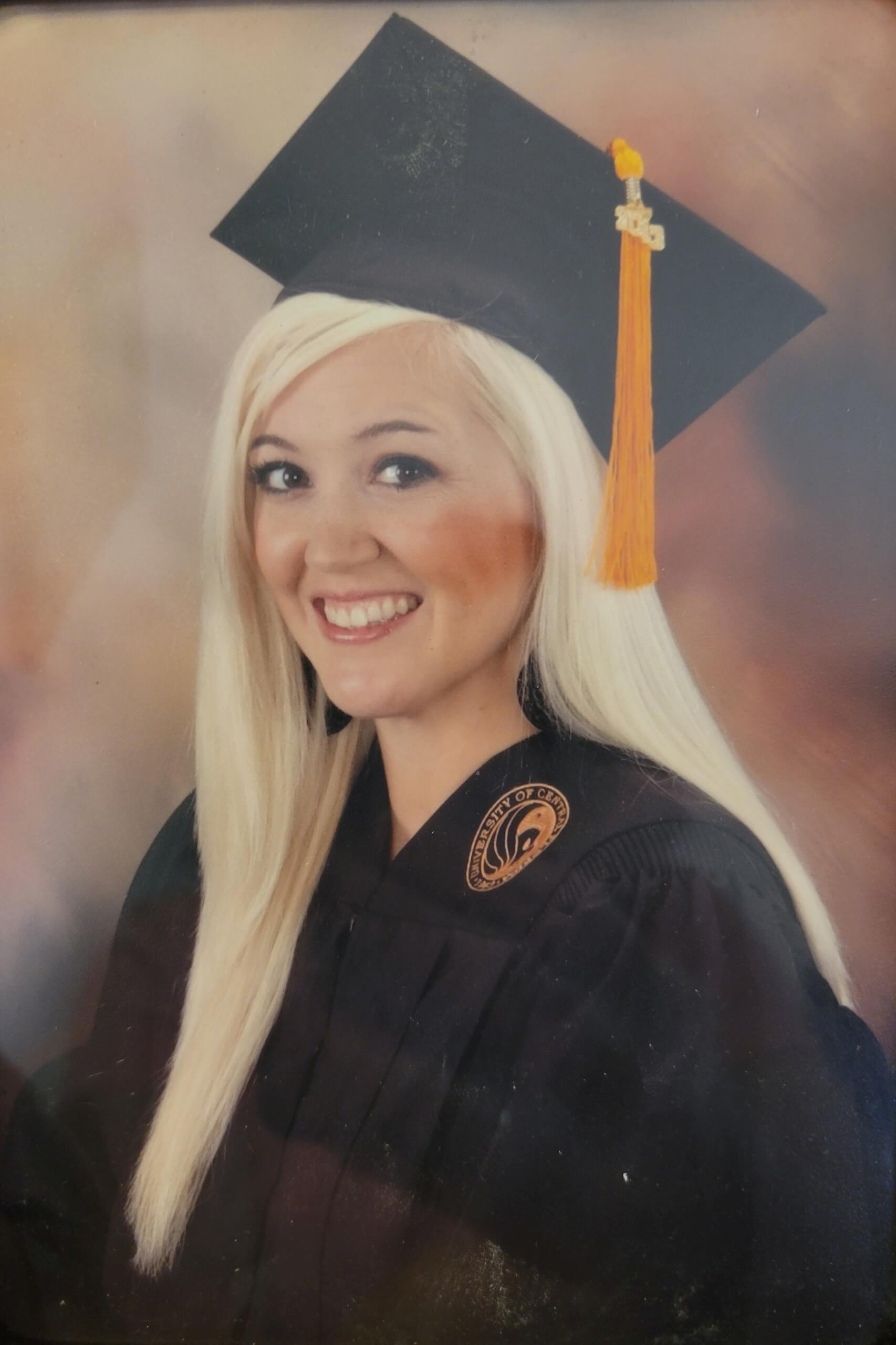Alumna Tatiana Lopez ’08: Her Quest for Eliana
Above Little Eliana Lopez is surrounded by love – and bubbles. Pictured above with her mother, Tatiana ’08, and her uncle, Zabiel Morales-Diaz, a UCF Biotechnology student.
Tatiana Lopez ’08 was accustomed to traveling when she was younger; with both parents in the Navy, it was just part of life. When her father passed away of cancer at an early age, Lopez and her mother established roots in Orlando to be closer to family.
Now, Lopez is on a journey of another kind: to raise awareness of Dravet Syndrome, a rare, incurable genetic disease that Eliana, her 3-year-old daughter, was diagnosed with as an infant.
It’s obviously not the life that she envisioned, but one for which she has been preparing for many years.
Life Happens
As Lopez neared graduation at University High School, she had big dreams of moving away from home and making her mark in the world.
“When you’re younger,” Lopez says, “It’s nice to say, ‘oh yeah, I’m moving out of state, going to get my life started and do all these great things,’ and then life throws you a curve ball.”
That curve ball was the new addition of her baby brother, Zabiel Morales-Diaz (now a UCF biotechnology student). Lopez says she could not imagine leaving her family at such an important time in their lives. She knew that she could accomplish her goals in a different way.

She majored in legal studies at UCF and minored in criminal justice. She had originally planned to become an attorney, and envisioned working six months out of the year, and then traveling the rest of the year with the money she would be earning. It would be great.
Turns out, she did not much care for the practice of law.
“I made it to law school, and I remember sitting in a family law class, crying. A friend elbowed me and asked me what was wrong. I was having a total meltdown.”
It wasn’t the topic of family law, per se. It was the cold, hard facts of the case, which did not end satisfactorily for Lopez.
“I wondered what happened after the case was settled,” Lopez recalls. “Why didn’t anyone help them?”
Finding Her Joy
Where she eventually found her joy, was the field of social work within the criminal justice setting. She had taken a psychology course at UCF and had always been intrigued about the way a person’s mind works.
“I worked with juveniles in corrections as a case manager,” Lopez says. The mental health aspect of the work appealed to her, especially seeing her clients improve.
Lopez became a director of case management for the region, providing training for case managers at other facilities. The work was heartbreaking at times, she admits.
“We did specialty work with sex offenders who were eventually going to age out and go into the adult system. We also examined their family history to help determine what got them into the system at such a tender age.”
Lopez was in her element: helping individuals overcome their circumstances and to give them a chance at a successful life.
As rewarding as Lopez’s work was, she realized that she wanted to pause her career while she concentrated on growing her family.
Her pregnancy was uneventful, she says. “I worked until the Friday before the C-section, and I was in and out super quick.”
Eliana was perfect, and was the baby sister of her older sibling, Jayden Little-Sparks, 2023 graduate of University High School, had been waiting for.
“My sister’s diagnosis made it harder to focus sometimes when having to worry for her safety constantly and I have to sacrifice some of my time to help within the family whenever she’s hospitalized, which obviously wasn’t ideal trying to also readjust to going back to school face-to-face after COVID. But, no matter what, I’d do it all again in a heartbeat.” – Jayden Little-Sparks
“The first month, she passed all of her tests and was ahead of the growth curve in all her milestones,” Lopez recalls.
After her two-month checkup, where the doctor signed off on all the paperwork necessary for Eliana to attend daycare, Lopez noticed that she was having “some really odd movements. Muscle spasms in her arms and legs,” Lopez recalls.
When she called the doctor’s office, they weren’t concerned. Maybe Eliana’s muscles were sore from the vaccinations, they said. Give her some Tylenol, massage her muscles. See if she’s better after 24 hours.
The odd movements in Eliana’s limbs continued, Lopez says. She briefly thought about seizures, but the only thing she knew about them was what she had seen in movies.
“Throughout this whole period, Eliana was content, she was cooing and babbling, so I didn’t know what was going on.”
Eliana’s doctor was concerned. Eliana spent that weekend in the hospital where she went through a gamut of tests and procedures. All the results were normal.
“They told me, well, next time you take her for a shot, maybe don’t get them all done at once,” Lopez says. Their concern did not match the growing fear that Lopez was having about her daughter.
 Eliana began having more troubling symptoms.. Her eyes would blink uncontrollably, and her tongue would move in the same pattern as her eyes.
Eliana began having more troubling symptoms.. Her eyes would blink uncontrollably, and her tongue would move in the same pattern as her eyes.
“It was never a full body seizure,” Lopez says. “It was her eyes, or a hand, leg or foot, or it was her tongue and lips.”
The frequency of the episodes was increasing as well, and Lopez began taking videos of her daughter when it happened so she could show Eliana’s clinicians. It was almost as though they didn’t believe her, or they thought that she was exaggerating her daughter’s condition.
Until one nurse at AdventHealth recognized that little Eliana’s movements were indicative of seizure activity and shared them with the on-call neurologist.
The neurologist viewed the videos and told Lopez, “’You’re not delusional, and you’re not exaggerating.’”
But Eliana was not sick, she did not have a fever, and her brain waves were not abnormal. They suggested genetic testing that could reveal a cause of the seizures that they just couldn’t see, because they did not have an explanation for the movements.
Lopez said Eliana’s clinical team was not convinced the testing would reveal a cause; the illness they were looking for was incredibly rare. Still, they scheduled a follow-up appointment for Eliana. By now, she was almost five months old, and Lopez had been searching for answers for three months, which is an eternity when it comes to your child’s health.
Finally, Some Answers
When Lopez looked at her phone that day, she saw that it was the neurologist’s office.
“The only reason they call you early is if something isn’t quite right,” Lopez says.
They wanted her to come in as soon as possible. They told her the neurologist had cleared his schedule to speak with her.
When Lopez and Ileana got to the office, they were led into a conference room to meet with the neurologist, a nurse, and a social worker.
“They didn’t even examine Eliana,” Lopez recalls. “We were all just sitting around a table having a talk about genetics.”
Eliana was diagnosed with Dravet Syndrome, a rare, incurable illness that had been causing her seizures. The especially troubling part about the illness was that Eliana was too young for all the medications that were typically used for a child with this condition.
“They didn’t have a brochure to give me,” Lopez says. “The social worker gave me a printout of websites that had some information about Dravet Syndrome, and the doctor said that there is a lot of research being done for new medications for patients like Eliana, and that their goal was to control the seizures as best they can.”
As Eliana grew, so did the frequency and severity of her seizures. When an individual has a seizure, it generally damages the brain, and consequently, results in an impairment of some kind.
In the space of just a few months after her diagnosis, Eliana lost her speech, her mobility, her hearing and her ability to eat or drink by mouth, Lopez says.
“For a while, we thought she lost her vision. She would not open her eyes or respond visually,” Lopez says. “We do know that she has some vision at this point, but we are unable to determine exactly what she can see.”
There is a large spectrum of symptoms among individuals with Dravet Syndrome, Lopez says. Eliana’s symptoms are on the severe side of the range, and her doctors are constantly monitoring her medications to see if there are better options for her.
Eliana still has near-daily seizures, but her recovery time is quicker. She sometimes babbles, but she has never learned how to say, “mama.” She has forgotten to realize when food is in her mouth, and is receiving therapy to try to retrain those muscles.
Eliana is currently too medically fragile to attend day care, so Lopez works with her during the day and manages her multiple home visits from caregivers.
Lopez has been employed with the Dravet Syndrome Foundation since January.
“One of the biggest things I love about the Foundation is that every person who works there has a child with the syndrome,” Lopez says. “We are passionate about it because it chose us, and we are living it every single day.”
Even before Lopez started working with the Foundation, they were able to direct her to resources for Eliana, including clinical trials for medications.
“When we talk about ‘rare’ and ‘new’ when we refer to Dravet Syndrome, we are not exaggerating, Lopez says. Just having an official diagnostic code is so important, and there is still a lot of pushback for therapies that are needed.”
Dravet Syndrome did not get an ICD-10-CM code until 2021, Lopez says. The code is a classification system of diagnosis codes representing conditions and diseases, related health problems, abnormal findings, signs and symptoms, injuries, and external causes of injuries and diseases. It is important for insurance billing; for the longest time, Dravet Syndrome was being billed as epilepsy, which is only a part of its cruel symptoms.
Even something as simple as a back brace was nearly impossible to receive prior to Dravet Syndrome being officially recognized, Lopez says. Eliana requires the support because cartilage in her body has not developed into bone, likely because of the vagaries of her illness.
What Does the Future Look Like?
Despite the many challenges that Eliana has endured, she has also overcome many obstacles, Lopez says.
“I can tell that she is light-years better than what she was a year ago,” Lopez says. “So what our ‘normal’ may look like compared to someone else living with epilepsy is totally, totally different. We know that our ultimate goal is not full seizure control, it’s how fast can we recover from each seizure.”
Lopez has a bigger goal of raising awareness of Dravet Syndrome. The only way to diagnose the disease is through genetic testing, and the Dravet Syndrome Foundation is in partnerships with a genetic-testing company that will offer it free to every pediatric patient, without encumbering an insurance company.
Click on each link below for more testing information
- Invitae’s Behind the Seizure Program provides no-charge genetic testing (epilepsy panel) for patients in the US under the age of 8 years that have experienced at least one unprovoked seizure.
- Probably Genetic offers no-cost genetic testing (whole exome sequencing) for pediatric-onset epilepsy.
Lopez was thrilled to learn that Orlando Mayor Buddy Dyer has proclaimed June 23, 2023 is “Dravet Syndrome Awareness Day,” to promote awareness of the disorder and to “ensure that people with Dravet syndrome receive the best possible treatment and proper diagnosis.”
“Testing should not be a barrier for any family who is seeking answers for their child,” Lopez says. “I remember crying over a laptop because I couldn’t find answers for Eliana.”
And now, just because she has more answers for her daughter, Lopez has not stopped fighting for her.
“I am a realistic person,” Lopez says. “If Eliana does not live out a full, long life, she was here. She would have been here long enough to make a difference, to open up the eyes of the medical individuals around us. I share her story for parents to tell them to keep fighting. And I want to tell people to always follow their heart, whether it’s with their career, their personal journey or something with their child. Trust yourself and keep Charging On.”



